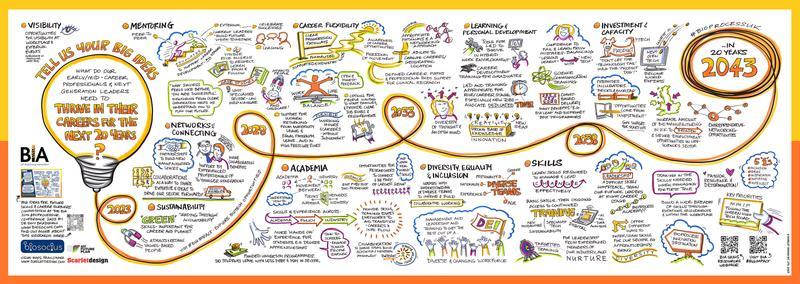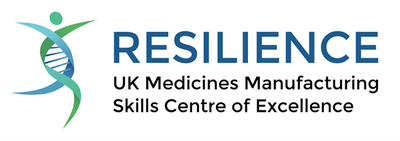The UK’s innovative life sciences and biotech industry is rapidly growing. BIA aims to address the sector’s skills challenges by helping companies expand their talent pool and attract the next generation of entrepreneurs and leaders.
This selection of resources includes insightful industry reports, skills programmes, success stories, placement, and funding opportunities to help the development of people, skills, and talent in your company.
You can also discover a wide range of life science and biotech jobs, and, if you are a BIA member, you can advertise your job openings on Sector Jobs Board.
Online Training Platform

Coordinated by Cell and Gene Therapy Catapult (CGT Catapult), the Online Training Platform (OTP) is your one-stop portal, providing you with remote access to industry-standard training and valuable development programmes from across the advanced therapies and vaccine manufacturing sector.
Gain access to a vast number of different digital learning options on the Online Training Platform (OTP) to expand your skillset in the direction you want to. There are various digital learning options available across manufacturing, technical, equipment and processes, quality, regulatory, leadership and compliance, just to name a few topics. Content includes access to eLearning packages, webinars, videos, information resources and more.
RESILIENCE - Centre of Excellence for UK Medicines Manufacturing Skills
The RESILIENCE Centre of Excellence partners (University of Birmingham, University College London, University of Teesside, Heriot-Watt University and Britest) have been at the forefront of skills and training for medicines manufacturing for many years, but RESILIENCE is about working in partnership with those who use and benefit from the training products, services, resources and support they provide. RESILIENCE is looking to develop and nurture the UK talent pipeline through education, mentoring and outreach, scaling-up talent growth across the UK giving widespread access to educational and outreach materials. They are utilising a range of different training approaches to ensure standardisation, accessibility for diverse learning styles, and net zero through digital skills development.
UK Talent & Skills Connect

Embracing innovation is vital for our economy and society. Success depends on attracting, nurturing, and retaining skilled individuals within our innovation ecosystem.
Innovate UK leads this effort, offering a range of innovative products and services to help businesses and partners develop talent and skills. Innovate UK Talent & Skills Connect simplifies access to these resources, making it easier for partners and businesses to thrive.
BIA Innovation Map

Building a life science start-up is a challenging endeavour, and support from mentors, experts, and peers can make the difference between success and failure. The BIA is dedicated to building a start-up community that can help every life science entrepreneur access the skills, support and wisdom they need to deliver on the promise of their companies.
As part of this, we have created the Innovation Map. While there are many organisations and initiatives aimed at supporting early-stage companies, identifying the right one for where your business is right now can be difficult. The Innovation Map is a directory of accelerators, incubators and other support organisations that enables you to start narrowing down which offers are right for you, and help your company develop to its full potential.

What do next-generation leaders need to thrive in their careers for the next 20 years?
In navigating the dynamic landscape of the next two decades, early/mid-career professionals must equip themselves with a multifaceted skill set to thrive in their careers. The 20th anniversary bioProcessUK conference served as a forum for participants to articulate their insights on this crucial topic. The resulting mind map, a collaborative synthesis of diverse perspectives, offers a comprehensive guide to the attributes and capabilities essential for success. From embracing technological advancements to cultivating adaptability and fostering a collaborative mindset, the mind map encapsulates the collective wisdom shared at the conference. To delve deeper into these invaluable insights and prepare for the future, interested individuals are encouraged to download the mind map and glean essential strategies for navigating the challenges and opportunities that lie ahead.


